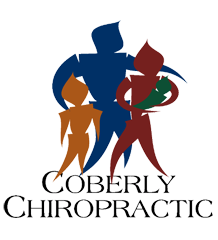
Questions and Answers
Do I have a slipped disc?
The disc is a soft pulpy “shock absorber.” It has a fibrous outer ring which holds in a jelly-like material. A “slipped disc” is a common way to refer to a wide variety of disc problems. However, a disc can’t slip because of the way it attaches to the spinal bones above and below it. A disc can bulge. It can tear. It can herniate. It can thin. It can dry out. And it can collapse. But it can’t slip.
How do you get subluxations?
There are three basic causes of subluxations. Physical causes could include slips and falls, accidents, repetitive motions and improper lifting. Emotions such as grief, anger and fear can cause subluxations. Chemical causes could include alcohol, drugs, pollution, and poor diet.
What makes the sound during the adjustment?
Lubricating fluids separate the bones of each spinal joint. Some adjusting methods can produce a sound when the gas and fluids in the joint shift. It’s much like opening a bottle of champagne or removing a suction cup. The sound is interesting, but it isn’t a guide to the quality or value of the adjustment.
How many adjustments will I need?
The number of adjustments varies with each patient and his or her individual health goals. Many patients sense progress within a week or two of frequent visits. Visits become less often as your spine stabilizes. In chronic cases, complete healing can take months or even years.
Why do newborns get adjustments?
Even today’s “natural” childbirth methods can affect an infant’s spine. Preliminary studies suggested that colic, unusual crying, poor appetite, ear infections or erratic sleeping habits can be signs of spinal distress. Pediatric adjustments are gentle. Knowing exactly where to adjust, the doctor applies no more pressure than you’d use to test the ripeness of a tomato.
Can I have chiropractic care after back surgery?
Yes. Rest assured that your chiropractic doctor will avoid the surgically modified areas of your spine. Surgery often causes instability above or below the involved level. These areas will be the focus of your chiropractic care.
How long until I’ll feel better?
Some patients experience almost instant relief. Others discover it can take many weeks or months. Many factors can affect the healing process, such as how long have you had your problem and whether you keep your appointments.

